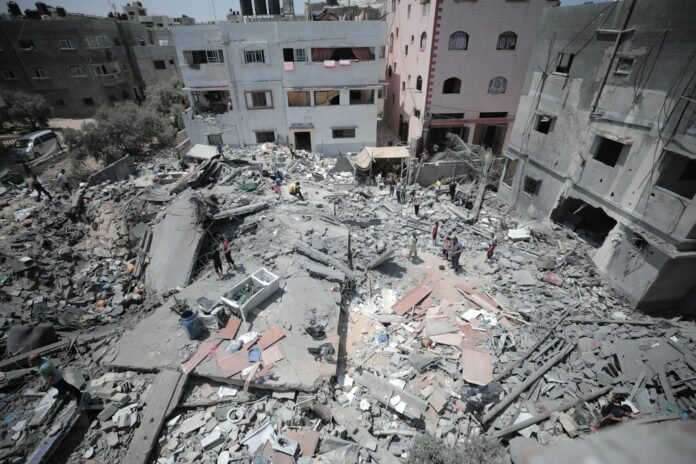The already fraught relationship between Israel and Hamas has escalated significantly following recent Israeli airstrikes that have resulted in numerous casualties in Gaza. This surge in violence comes as mediators attempt to negotiate a tenuous truce amidst growing hostility. In these strikes, a potential pathway to de-escalation emerged when Hamas suggested the possibility of releasing a list of 34 hostages, potentially signalling a willingness to negotiate.
The Israel-Gaza conflict is one of the longest-standing geopolitical conflicts in modern history, rooted in decades of territorial disputes and ideological clashes. Historically, peace efforts have been hampered by cycles of violence and mutual distrust. This complex backdrop makes each resurgence of conflict potentially crippling to peace talks and regional stability.
Embed from Getty ImagesCurrently, mediation efforts, possibly spearheaded by regional powers or international bodies such as Egypt or the United Nations, highlight the importance of addressing humanitarian concerns while preventing further violence. However, these efforts face a significant challenge as both parties perceive negotiations as crucial to their strategic and political positioning.
This moment is particularly perilous because, while Hamas’ offer might suggest a slight openness to negotiation, the continuation of airstrikes and rocket attacks suggests that the path to peace is fraught with obstacles. The potential humanitarian crisis in Gaza could amplify calls from the international community for immediate interventions and might eventually prompt a renewed international consensus on finding a sustainable resolution.
Perspectives
Perspective 1: From the Israeli government’s standpoint, the airstrikes represent a necessary measure of self-defence in response to ongoing rocket fire into Israeli territory. This perspective might emphasize the security threats posed by Hamas and argue that military action is crucial to prevent further attacks and ensure national security. Israel’s narrative might focus on the need to neutralize threats while ensuring that any ceasefire includes robust guarantees to stop attacks permanently.
Perspective 2: Conversely, from Hamas’ perspective, the conflict could be seen as a fight against Israeli occupation and a call for international attention to the blockade’s effects in Gaza. They may argue that resistance is a legitimate response to the perceived siege and human rights abuses. As they propose releasing hostages, they might see this as a bargaining chip to achieve some leverage in negotiations for lifting or easing blockades.
Perspective 3: From the international community’s angle, this increase in violence could necessitate a reevaluation of past peace initiatives. Observers may emphasize the urgent need for a balanced approach that addresses both Israel’s security concerns and the humanitarian situation in Gaza. Calls for renewed peace talks would likely stress the importance of external mediation, perhaps through a coalition of states or international bodies, to facilitate lasting peace.
